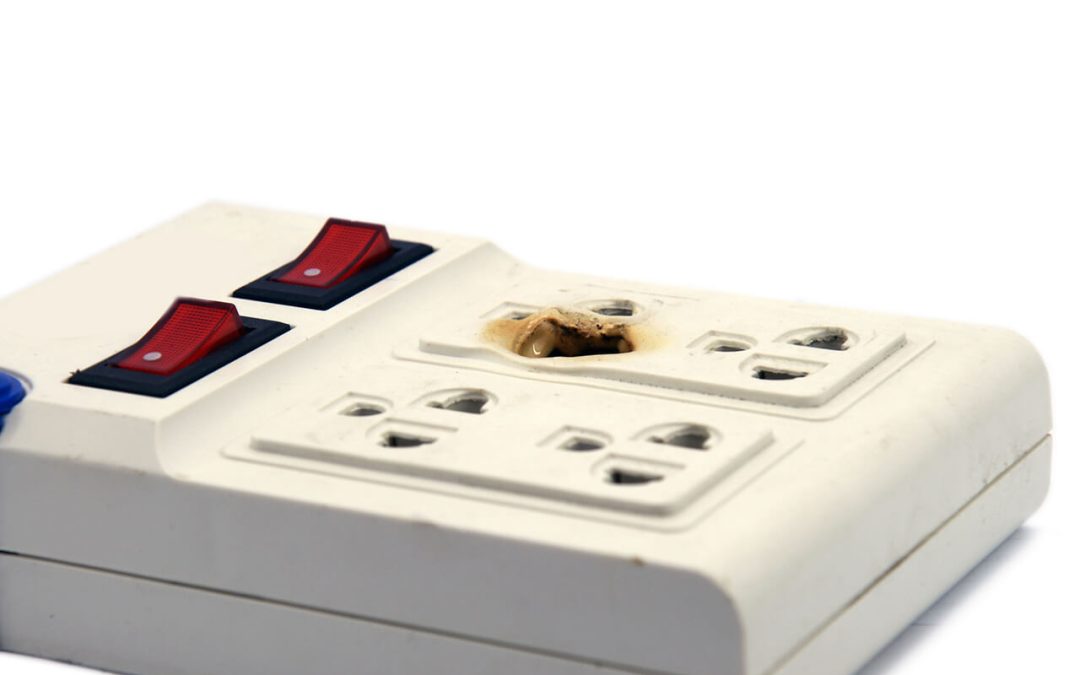Electrical safety is one of those topics that often gets overlooked until something goes wrong. Homeowners use electricity daily without giving it much thought, flipping switches, plugging in devices, or running appliances on autopilot. Understanding electrical safety basics means recognizing that electricity is both a modern convenience and a potential danger. Knowing how it operates and what to watch out for will help you avoid problems before they escalate.
Common Electrical Safety Hazards in Homes
When it comes to hazards, not all electrical issues are obvious. Outdated wiring is a significant concern, especially in older homes that are not designed to handle today’s heavy electrical loads. Overloaded outlets or circuits are another common problem, often caused by too many devices running in the same space. Frayed or damaged cords may seem minor, but could lead to sparks or fires if ignored. Extension cords, when misused, create hidden dangers by overheating under rugs or being stretched too tightly against walls. Even something as small as a buzzing outlet or a warm switch plate is a clear warning that your home’s electrical safety could be at risk.
How Electrical Safety Protects Your Family
The most important reason to prioritize electrical safety is the protection it provides for your family. Electrical malfunctions are one of the leading causes of house fires, but many of these incidents are preventable. Installing smoke detectors and carbon monoxide alarms provides early warnings if something goes wrong. Families with young children should add outlet covers and child-safe plates to prevent accidental shocks. Electrical safety should include protecting expensive devices with surge protectors, which safeguard electronics like televisions, computers, and gaming systems from sudden spikes. The peace of mind that comes with knowing your home is safe is just as valuable as the physical protection it provides.
When to Hire a Professional
While DIY repairs are popular for many home projects, electrical safety should never be left to chance. Licensed electricians are trained to spot hazards that the average homeowner might miss. Scheduling a professional electrical safety inspection every few years will identify hidden issues such as outdated breaker panels, improperly grounded wiring, or overloaded circuits. These inspections will bring your home up to code, extend the lifespan of your system, and help prevent emergencies that often cost far more than preventive maintenance. Relying on professionals guarantees that your safety is backed by expertise.
Everyday Practices that Contribute to Your Safety
Simple steps, like unplugging appliances when they aren’t in use, keep cords from overheating and lower energy use at the same time. Avoid stacking multiple high-powered devices on a single outlet, and never ignore a breaker that trips repeatedly; it’s doing its job to protect your home. Checking cords and outlets regularly for signs of wear takes only a few minutes, while preventing major risks. Even small habits, such as keeping water away from electrical devices in the kitchen or bathroom, build a foundation for long-term safety.
Upgrading Your Home with Safety in Mind
As modern households rely on more technology, electrical systems must evolve to meet new demands. Home improvement projects are the perfect time to consider upgrades with electrical safety in mind. Ground fault circuit interrupters (GFCIs) in kitchens, bathrooms, garages, and outdoor outlets reduce the risk of shock in moisture-heavy areas. Arc fault circuit interrupters (AFCIs) are another upgrade that detects dangerous arcs in wiring before they cause fires. Adding smart outlets or a new breaker panel with surge protection brings both convenience and protection. These updates are an investment, but they add safety, value, and functionality to your home for years.
Why Electrical Safety Should Never Be Ignored
Electrical safety issues typically get worse over time. A breaker that trips often may indicate overloaded circuits, while flickering lights could signal loose connections behind the wall. Ignoring these warning signs puts your property at risk and endangers everyone who lives there. By taking electrical safety seriously, you’re protecting your family’s future. Whether it’s through everyday habits, scheduled inspections, or thoughtful upgrades, electrical safety should remain at the top of every homeowner’s priority list.
FAQs
What is the biggest electrical safety risk in homes?
Outdated wiring is one of the most common risks. It can’t handle today’s high demand, making it more likely to cause shorts, sparks, or even fires.
How often should I schedule an electrical inspection?
Experts recommend having a professional inspection every 3 to 5 years, or sooner if you notice issues such as tripping breakers, buzzing outlets, or unusual burning smells.
Are power strips safe to use?
Yes, but they should be used correctly. Always use power strips with built-in surge protection, and avoid plugging in high-wattage appliances.
Do I need GFCI outlets in my home?
Yes. GFCI outlets are critical in bathrooms, kitchens, garages, and outdoor spaces. They protect against electrical shocks in areas exposed to water.
Rambo Inspection Services provides home inspections in the Chicagoland area. Contact us to schedule our services.

